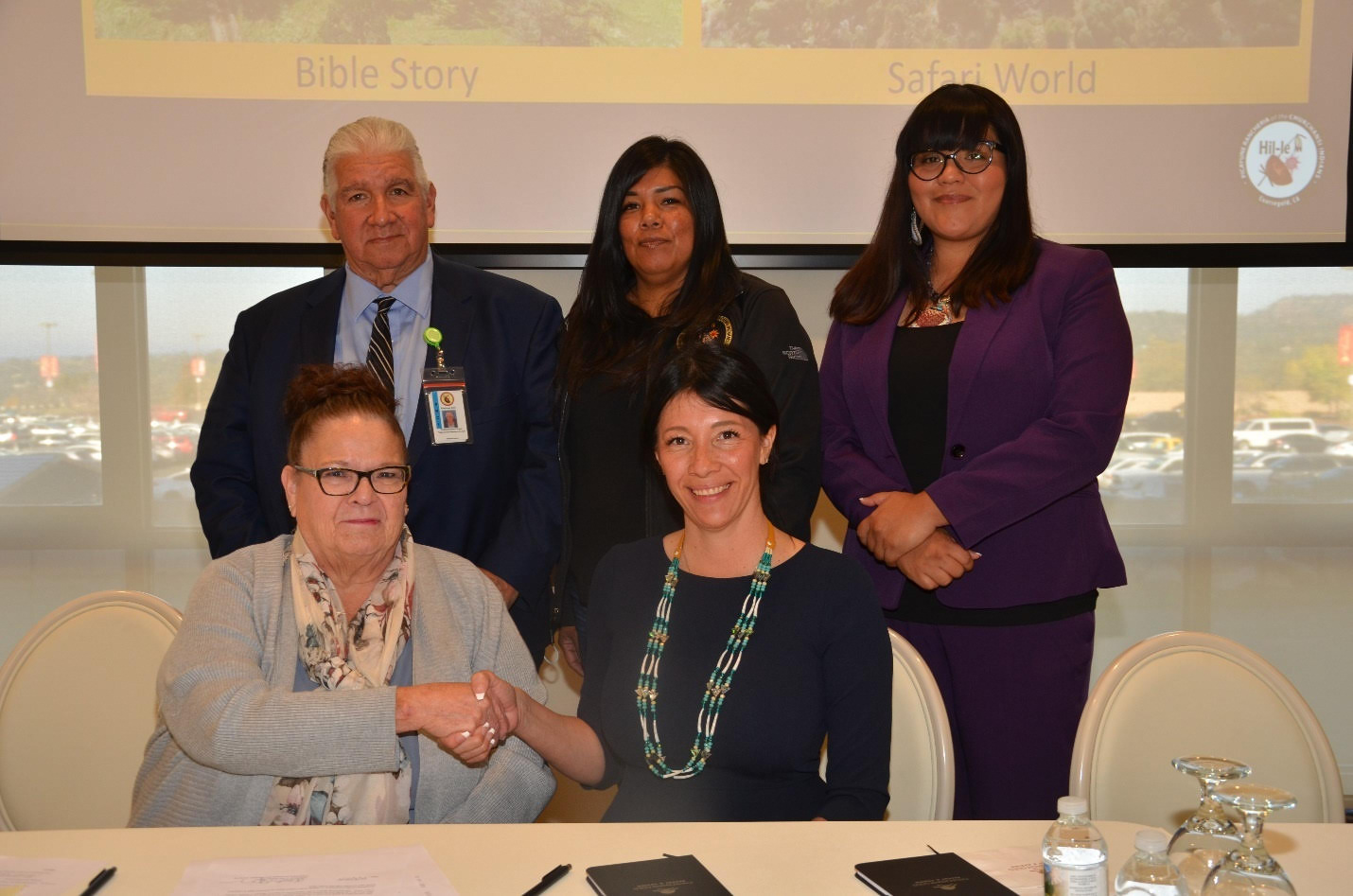
- Details
- By Native News Online Staff
The U.S. Department of Interior on Wednesday accepted 283 acres of land into federal trust for the Picayune Rancheria of Chukchansi Indians. The land includes two parcels known as Bible Story and Safari World near Coarsegold in the Sierra foothills, within the tribe’s ancestral territory.
“Placing this land into trust is an exercise of our sovereignty,” Picayune Chairwoman Claudia Gonzales said. “This was the culmination of hard work by the tribal council and our staff to complete a complex administrative process. We will now exercise jurisdiction and utilize this land for tribal government purposes such as housing and economic development to benefit tribal members and future generations.”
Want more Native News? Get the free daily newsletter today.
The Bible Story and Safari World land consists of open space and rolling hills with oaks and conifers.
“This is a major accomplishment for the Picayune Rancheria of Chukchansi Indians that will significantly increase the Tribe’s land base, which will support tribal needs including housing for its citizens,” Bureau of Indian Affairs Pacific Regional Director Amy Dutschke said.
Development of the Bible Story and Safari World trust lands fits into the Chukchansi tribe’s broader, overarching economic development strategy, as the tribe continues to expand its sovereign enterprises, including the grand opening of a SONIC drive-in restaurant this summer at the Chukchansi Crossing Fuel Station & Travel Center and the continued operation of the Willow Glen Smoke Shop, Chukchansi Insurance, Inc. and the Chukchansi Gold Resort & Casino.
The Picayune Rancheria of Chukchansi Indians headquartered just of the entrance to Yosemite National Park in Oakhurst, Calif., 46 miles north of Fresno.
More Stories Like This
Indian Gaming Association Rallies Broad Coalition Against Sports Event Contracts It Calls Illegal Threat to Tribal SovereigntyNavajo Resources and Development Committee Issues Notice on Livestock Inspection Requirements
American Prairie, Tribal Coalition Files Protest Over Rescinded Grazing Rights
Northern Cheyenne Push Back Against Trump Administration’s Effort to Alter Little Bighorn History
Florida Man Sentenced for Falsely Selling Imported Jewelry as Pueblo Indian–Made
Help us defend tribal sovereignty.
At Native News Online, our mission is rooted in telling the stories that strengthen sovereignty and uplift Indigenous voices — not just at year’s end, but every single day.
Because of your generosity last year, we were able to keep our reporters on the ground in tribal communities, at national gatherings and in the halls of Congress — covering the issues that matter most to Indian Country: sovereignty, culture, education, health and economic opportunity.
That support sustained us through a tough year in 2025. Now, as we look to the year ahead, we need your help right now to ensure warrior journalism remains strong — reporting that defends tribal sovereignty, amplifies Native truth, and holds power accountable.
 The stakes couldn't be higher. Your support keeps Native voices heard, Native stories told and Native sovereignty defended.
The stakes couldn't be higher. Your support keeps Native voices heard, Native stories told and Native sovereignty defended.
Stand with Warrior Journalism today.
Levi Rickert (Potawatomi), Editor & Publisher

